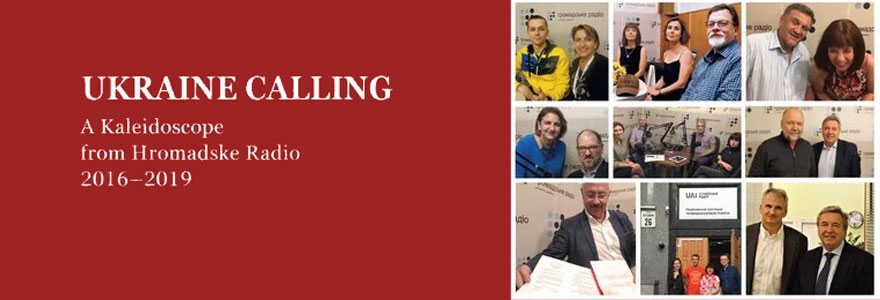News and Updates
Contact
Faculty of Social Science
Social Science Centre
Room 9438
Western University
T. 519-661-2053
F. 519-661-3868
E. social-science@uwo.ca
Ukraine Calling acts as a primary source on the Russo-Ukrainian War
May 05, 2021
Story by Rob Rombouts
“I think that we should be reaching out more to society in various ways. The research we do creates ideas and knowledge that we should be sharing with the wider world, and not just a few experts,” Marta Dyczok said. “There is a lot more we can be doing to share our knowledge and ideas with a wider audience.”
In 2014, as Russia invaded Ukraine, annexing Crimea, people kept asking Dyczok about the state of affairs. Unable to find a good English-language source, she created her own.
Dyczok, an Assistant Professor in the departments of History and Political Science, specializes in international politics and history in Eastern Europe. In 2016, working with Hromadske Radio, she launched Ukraine Calling. Over the course of 124 episodes, the program featured interviews with individuals located inside and outside of the country, capturing their thoughts and feelings during the struggle. Through this program, Dyczok aimed to counter disinformation from Russia by presenting accurate and accessible information that was easily understood by an English-language audience.
At roughly the same time as the annexation of Crimea, Russian operatives and their proxies in the Eastern-Ukraine region of Donetsk, created the Donetsk People’s Republic.
Now, Dyczok has compiled a selection of these interviews into her new book “Ukraine Calling: A Kaleidoscope from Hromadske Radio 2016–2019.” She hopes the book will act as a primary source for individuals looking to know what was happening, and what people were thinking at the time.
“We live in a world of information overload,” said Dyczok. “Five years later, it is hard to remember or think about what people were thinking about at the time.”
During the time the program ran, many students, from Dyczok's own classes, as well as from other universities, became involved in the project as volunteers, making the porgram a form of student engagement outside the classroom.
The war has faded from the headlines in North America, but the war in Ukraine continues as a simmering conflict. The Russian military continues to provide support in Donetsk, and there are daily launches of mortar shells and rockets into Ukrainian territory.
“Putin continues to suggest and state that there is no Russian involvement, that this is a Ukrainian civil war,” said Dyczok. “A protracted war is no longer news – the same way that Syria is hardly ever in the news – unless something big happens.”
In March and April 2021, the Russian military began to move troops closer to the Russia-Ukrainian border, a move Putin suggested was part of normal military operations.
Dyczok does not foresee an end to the conflict, predominantly due to the fact that few world leaders will confront Putin.
“It is important to call Putin on his behaviours; few world leaders will do that,” she said.
While “many continue with diplomatic niceties”, Dyczok noted that they will not take the steps to impose harsh sanctions on Russia for fear they will impact their own economies.
While Dyczok has paused her involvement in Ukraine Calling, she has hope someone else will pick up the work, in order to continue to share news from Ukraine with the wider world.
Ukraine Calling: A Kaleidoscope from Hromadske Radio 2016–2019 is published by ibidem and distributed by the Columbia University Press.

